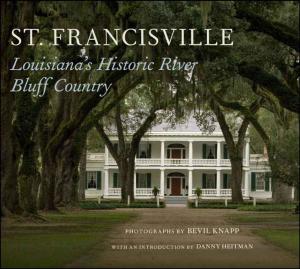The Prose Elegy
An Exploration of Modern American and British Fiction
Fiction & Literature, Literary Theory & Criticism, British| Author: | John B. Vickery | ISBN: | 9780807149171 |
| Publisher: | LSU Press | Publication: | May 15, 2009 |
| Imprint: | LSU Press | Language: | English |
| Author: | John B. Vickery |
| ISBN: | 9780807149171 |
| Publisher: | LSU Press |
| Publication: | May 15, 2009 |
| Imprint: | LSU Press |
| Language: | English |
Traditional English poetic elegists offer both writers and readers hope. After lamenting an individual's death and confronting the mortality of all living things, these poets seek consolation from religion, philosophy, or culture for the inevitability of death. The modern prose elegy, however, follows a different path -- one that determinedly questions all possible resolutions. In The Prose Elegy, John B. Vickery continues the work he began in The Modern Elegiac Temper, which examined the form in British and American poetry. He now considers the works of American and British fiction writers from Henry James to Joan Didion and reveals how the elegy expanded into prose and why it evolved so as to deal not only with death but also with other forms of loss.
Focusing on individual works, Vickery explores both the forms the elegy takes throughout the twentieth century and the skeptical and uncertain attitudes of writers struggling to confront the trauma of loss. He offers detailed interpretations of the elegiac components in the works of novelists James Joyce, William Faulkner, Virginia Woolf, and Ernest Hemingway, each of whom forged a distinctive style, as well as chroniclers of a pervasive stoicism, such as Malcolm Lowry and Joan Didion, and writers as nuanced as Sherwood Anderson, F. Scott Fitzgerald, James Agee, and Ford Madox Ford.For these writers, Vickery shows, sorrow intrudes upon the personal, intellectual, and cultural aspects of daily living. By exploring how loss touches each of these areas, their books probe intellectual boundaries and discover new elegiac themes. Truman Capote and John Updike, for example, view memory -- which can disappear quickly -- as inherently sad. They therefore elegize memory. What consoles writers of the modern elegy changes too. In place of Milton's religion or Shelley's philosophy, twentieth-century writers also seek comfort from what also saddens them: family, marriage, and ideas of the self.
In The Prose Elegy, Vickery convincingly demonstrates that the elegy remains a dominant mode throughout British and American literature -- with perhaps greater pertinence to our lives than ever before.
Traditional English poetic elegists offer both writers and readers hope. After lamenting an individual's death and confronting the mortality of all living things, these poets seek consolation from religion, philosophy, or culture for the inevitability of death. The modern prose elegy, however, follows a different path -- one that determinedly questions all possible resolutions. In The Prose Elegy, John B. Vickery continues the work he began in The Modern Elegiac Temper, which examined the form in British and American poetry. He now considers the works of American and British fiction writers from Henry James to Joan Didion and reveals how the elegy expanded into prose and why it evolved so as to deal not only with death but also with other forms of loss.
Focusing on individual works, Vickery explores both the forms the elegy takes throughout the twentieth century and the skeptical and uncertain attitudes of writers struggling to confront the trauma of loss. He offers detailed interpretations of the elegiac components in the works of novelists James Joyce, William Faulkner, Virginia Woolf, and Ernest Hemingway, each of whom forged a distinctive style, as well as chroniclers of a pervasive stoicism, such as Malcolm Lowry and Joan Didion, and writers as nuanced as Sherwood Anderson, F. Scott Fitzgerald, James Agee, and Ford Madox Ford.For these writers, Vickery shows, sorrow intrudes upon the personal, intellectual, and cultural aspects of daily living. By exploring how loss touches each of these areas, their books probe intellectual boundaries and discover new elegiac themes. Truman Capote and John Updike, for example, view memory -- which can disappear quickly -- as inherently sad. They therefore elegize memory. What consoles writers of the modern elegy changes too. In place of Milton's religion or Shelley's philosophy, twentieth-century writers also seek comfort from what also saddens them: family, marriage, and ideas of the self.
In The Prose Elegy, Vickery convincingly demonstrates that the elegy remains a dominant mode throughout British and American literature -- with perhaps greater pertinence to our lives than ever before.















